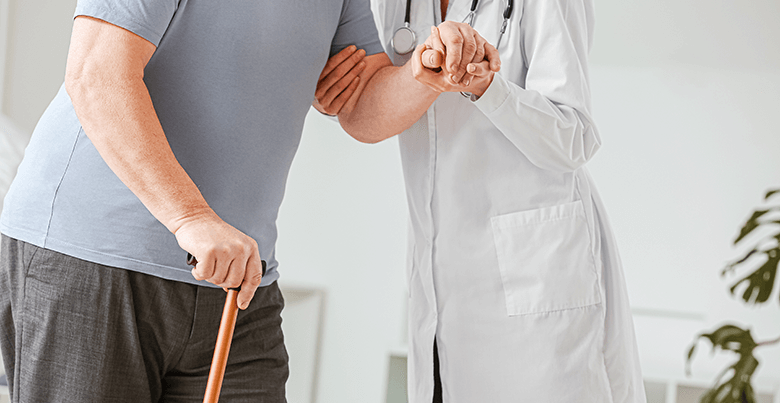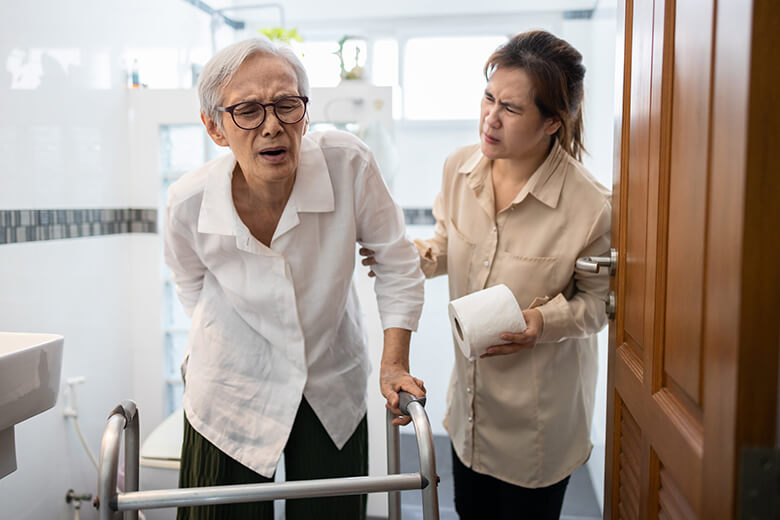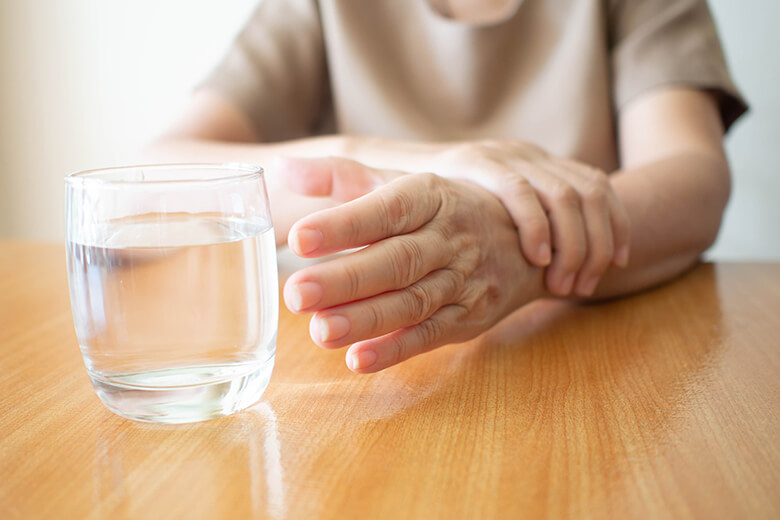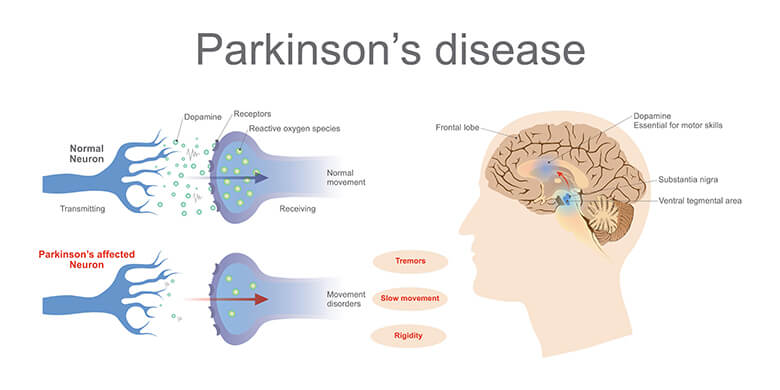Leave a Reply
Your email address cannot be published. Required fields are marked*

What is Parkinson’s disease?
Parkinson’s disease (PD) is a progressive neurodegenerative disorder in which dopamine-producing neurons of a brain structure called the substantia nigra (a part of the brain that contains high number of dopamine-producing neurons), are damaged and die over time, leading to a number of motor problems and mental disabilities1. Substantia nigra is located in a part of the brain (basal ganglia/ basal nucleus) that is responsible for motor control where all the involuntary movements are controlled. In healthy person, this part of the brain is filled with dopamine neurons which play a critical role in brain cell communication. Dopamine neurons produces dopamine to help our body in making normal movements. This disease has affected approximately 7.5 million people worldwide with 0.3% of the patients is in the population of 40 years old and above2.
What are the symptoms of Parkinson’s disease?
The major symptoms of PD include hand tremors, limb rigidity, bradykinesia (slowness of movement) and postural instability3. In other features, such as in craniofacial (skull and face), will show hypomimia (loss/reduction of facial expressions), dysphagia (problems swallowing food or fluids), and hypophonia (soft/slurred speech)4. Blurred vision and eyelid opening apraxia (difficulty in eyelid elevation) are the effects on visual features of PD patients while in gait (walking pattern) features, symptoms such as shuffling and freezing could occur.

Limb rigidity
.jpg)
Bradykinesia (Postural instability)

Hand tremor
PD patients are more likely to experience gastrointestinal (GI) dysfunction compared to normal and healthy people that could appear as bloating, constipation, nausea, delayed gastric emptying, and prolonged bowel transit time where the stools are stored in longer time in the body, leading to an incomplete evacuation of stools5,6. Some researchers also hypothesized that PD starts from the gut7,8. Reduced bowel movement, or constipation are particularly common in Parkinson’s9. This problem is related to symptoms faced by PD patients, especially bradykinesia and muscle rigidity that causes reduction or slowness of bowel movements. PD patients also have hard time to chew and swallow their food properly that can cause indigestion, and eventually cause poor bowel function due to lack of nutrients in the body. Constipation is thought to affect up to 65% of people with Parkinson’s. On the other hand, the medications taken by PD patients could also cause diarrhea. Thus, it is suggested for PD patients to consume probiotics concomitantly with their medications.
What are probiotics?
Probiotics are live microorganisms that confer health benefits on the host when administered in adequate amounts10. There are multiple evidence that show probiotics could control and improve several motor on non-motor symptoms in patients and experimental animal models of PD11. Probiotics consumption could help in balancing the gut microbiota and reduce the gut disturbances in Parkinsonism12. One of the probiotics that is available in the market and local pharmacies is the MCP® BCMC® strains; it is prepared with six different strains of beneficial bacteria and have been clinically tested on PD patients for their bowel movement. This study is conducted in Hospital Canselor Tuanku Muhriz UKM under randomized controlled trial (RCT). RCT is considered as the gold standard trial which is the most reliable evidence for human study. The clinical evidence showed that constipated PD patients taking MCP® BCMC® strains had 50% increase of gut bowel movement and 38% reduction time for the stools to be evacuated out from the body compared to those not taking MCP® BCMC® strains13.
What is the real cause of Parkinson’s disease?
The real cause of this disease is unknown14. However, there are two possible reasons that could lead to the disease which are genetic and also environmental factors. The mutation of genes or the faulty genes inherited from parents could be a cause that lead to Parkinsonism15. Though only 15% of PD patients showed family history, it can still be considered as a cause or increase a person’s risk of developing this disease. Exposure to certain pesticides or cleaning chemicals might trigger someone to get PD. Besides that, inhaling and contact with heavy metals especially copper, manganese and lead are one of the possible reasons15.
Can Parkinson’s disease be cured?
There is no cure for PD but the effect could be reduced by increasing dopamine levels by using medications. Early stage of PD patients may opt for this treatment as it is very helpful in reducing unwanted movements. However, over time, medications might not work anymore. This is when doctors will suggest the patients to undergo surgery, e.g. Deep brain stimulation surgery (DBS). DBS is the most performed surgical treatment for PD and it is proven to help patients to cope with the disease and improve their movements16. Apart from medication and surgery, patients can take clinically-proven probiotic (MCP® BCMC® strains) as an adjunct therapy to improve gut disturbances associated with PD.

Comparison of dopamine levels in normal vs Parkinson's disease
How to prevent Parkinson’s disease?
PD can happen to anyone despite their age and health conditions. Therefore, it is wise to take good care of our health by having regular physical exercise and making sure the food that is eaten are healthy, nutritious and safe. Other than following a balanced diet, adding probiotics into our diet helps promote and maintain good gut health. This is because, probiotics aid better digestion and prevent gut disturbances. They also help in refining nutrient absorption in our gut to improve the body’s immune system and provide adequate energy. Besides that, industrial areas should be avoided to prevent heavy metal exposures and also hazardous chemicals to enter our body which can cause mutation in our genes and increase the risk of getting PD.
Tips to maintain healthy gut microbiota in adulthood and elderhood:
Reference
[1] Kalia LV, Lang AE. Parkinson's disease. Lancet. 2015 Aug 29;386(9996):896-912. doi: 10.1016/S0140-6736(14)61393-3. Epub 2015 Apr 19. PMID: 25904081.
[2] Hirsch L, Jette N, Frolkis A, Steeves T, Pringsheim T. The Incidence of Parkinson's Disease: A Systematic Review and Meta-Analysis. Neuroepidemiology. 2016;46(4):292-300. doi: 10.1159/000445751. Epub 2016 Apr 23. PMID: 27105081.
[3] Hughes AJ, Daniel SE, Kilford L, Lees AJ. Accuracy of clinical diagnosis of idiopathic Parkinson's disease: a clinico-pathological study of 100 cases. J Neurol Neurosurg Psychiatry. 1992 Mar;55(3):181-4. doi: 10.1136/jnnp.55.3.181. PMID: 1564476; PMCID: PMC1014720.
[4] Antony P.M., Diederich N.J., Kruger R., Balling R. The hallmarks of Parkinson’s disease. Febs. J. 2013;280:5981–5993. doi: 10.1111/febs.12335.
[5] Fasano A., Visanji N.P., Liu L.W.C., Lang A.E., Pfeiffer R.F. Gastrointestinal dysfunction in Parkinson’s disease. Lancet Neurol. 2015;14:625–639. doi: 10.1016/S1474-4422(15)00007-1.
[6] Santos S.F., de Oliveira H.L., Yamada E.S., Neves B.C., Pereira A. The Gut and Parkinson’s Disease—A Bidirectional Pathway. Front. Neurol. 2019:10. doi: 10.3389/fneur.2019.00574.
[7] Klingelhoefer L., Reichmann H. Pathogenesis of Parkinson disease--the gut-brain axis and environmental factors. Nat. Rev. Neurol. 2015;11:625–636. doi: 10.1038/nrneurol.2015.197.
[8] Perez-Pardo P., Kliest T., Dodiya H.B., Broersen L.M., Garssen J., Keshavarzian A., Kraneveld A.D. The gut-brain axis in Parkinson’s disease: Possibilities for food-based therapies. Eur. J. Pharm. 2017;817:86–95. doi: 10.1016/j.ejphar.2017.05.042.
[9] Martinez-Martin P. The importance of non-motor disturbances to quality of life in Parkinson's disease. J Neurol Sci. 2011 Nov 15;310(1-2):12-6. doi: 10.1016/j.jns.2011.05.006. Epub 2011 May 31. PMID: 21621226.
[10] FAO/WHO. Guidelines for the Evaluation of Probiotics in Food. (accessed on 5 April 2022); Available online: https://www.who.int/foodsafety/fs_management/en/probiotic_guidelines.pdf
[11] Mirzaei, H., Sedighi, S., Kouchaki, E. et al. Probiotics and the Treatment of Parkinson's Disease: An Update. Cell Mol Neurobiol (2021). https://doi.org/10.1007/s10571-021-01128-w
[12] Unger M.M., Spiegel J., Dillmann K.U., Grundmann D., Philippeit H., Burmann J., Fassbender K., Schwiertz A., Schafer K.H. Short chain fatty acids and gut microbiota differ between patients with Parkinson’s disease and age-matched controls. Parkinsonism Relat. D. 2016;32:66–72. doi: 10.1016/j.parkreldis.2016.08.019.
[13] Ibrahim A, Ali RAR, Manaf MRA, Ahmad N, Tajurruddin FW, Qin WZ, Desa SHM, Ibrahim NM. Multi-strain probiotics (Hexbio) containing MCP BCMC strains improved constipation and gut motility in Parkinson's disease: A randomised controlled trial. PLoS One. 2020 Dec 31;15(12):e0244680. doi: 10.1371/journal.pone.0244680. PMID: 33382780; PMCID: PMC7774928.
[14] Parkinson’s Foundation. What Is Parkinson’s? (accessed on 5 April 2022); Available online: https://www.parkinson.org/understanding-parkinsons/what-is-parkinsons
[15] NHS. Parkinson’s Disease. (accessed on 5 April 2022); Available online: https://www.nhs.uk/conditions/parkinsons-disease/causes/#:~:text=Parkinson's%20disease%20is%20caused%20by,producing%20a%20chemical%20called%20dopamine.
[16] Cleveland Clinic. Deep Brain Stimulation for Parkinson’s Disease Patients. (accessed on 5 April 2022); Available online: https://my.clevelandclinic.org/health/treatments/4080-deep-brain-stimulation-for-parkinsons-disease-patients#:~:text=Deep%20brain%20stimulation%20(DBS)%20delivers,which%20is%20causing%20the%20symptoms.
Your email address cannot be published. Required fields are marked*
Comments:0
No comments